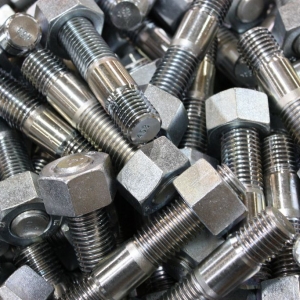Inconel 725 is a nickel-chromium-molybdenum-niobium alloy that is well-suited for use in the aerospace industry. It is particularly useful for high-temperature applications requiring excellent corrosion resistance, fatigue strength, and weldability. This article will explore the advantages of using Inconel 725 plates in the aerospace industry.
High-Temperature Applications
The aerospace industry often requires materials that can withstand high-temperature environments. Inconel 725 can maintain its strength and resistance to deformation at temperatures up to 1200°C (2192°F), making it an ideal choice for high-temperature applications in aerospace. This alloy has a high nickel content, enabling it to resist thermal fatigue and shock. In addition, Inconel 725 has a high chromium content, which provides excellent oxidation resistance at high temperatures. Its ability to withstand high temperatures without losing its properties makes it a preferred material for gas turbine engine components, heat exchangers, and exhaust systems.
Benefits of using Inconel 725 in high-temperature applications
- Maintains strength and resistance to deformation at high temperatures.
- Resists thermal fatigue and thermal shock.
- Provides excellent oxidation resistance at high temperatures.
Corrosion Resistance
The aerospace industry operates in harsh environments that expose materials to corrosive elements such as salt, moisture, and chemicals. Inconel 725 has excellent corrosion resistance, making it an ideal material for aerospace applications. Its high nickel and chromium content provide superior corrosion resistance while adding molybdenum and niobium further enhances its resistance to pitting and crevice corrosion. Inconel 725 is commonly used in components exposed to harsh environments, such as aircraft engines, landing gear, and fuel tanks.
Benefits of using Inconel 725 for corrosion resistance in aerospace
- Excellent resistance to corrosion.
- Superior resistance to pitting and crevice corrosion.
- Suitable for components exposed to harsh environments.
Fatigue Strength
Fatigue failure is a common problem in the aerospace industry, as components are subjected to cyclic loading that can cause cracks and eventual failure. Inconel 725 has excellent fatigue strength, allowing it to resist cyclic loading and prevent fatigue failure. Its high nickel content provides excellent resistance to cracking, while its molybdenum and niobium content further enhance its ability to resist fatigue failure. Inconel 725 is commonly used in turbine blades, shafts, and springs.
Benefits of using Inconel 725 for fatigue strength in aerospace
- Excellent fatigue strength.
- Resists cyclic loading and prevents fatigue failure.
- Suitable for components subjected to cyclic loading.
Weldability
Welding is an important process in the aerospace industry, as components are often assembled from multiple parts. Inconel 725 has excellent weldability, making it easy to join multiple parts together. Its high nickel content provides excellent weldability, while its molybdenum and niobium content prevent weld cracking and porosity. Inconel 725 is commonly used in components such as exhaust systems, heat exchangers, and combustion chambers.
Benefits of using Inconel 725 for weldability in aerospace
- Excellent weldability.
- Prevents weld cracking and porosity.
- Suitable for components that require welding.
Conclusion
Inconel 725 offers several advantages for use in the aerospace industry. Its ability to withstand high temperatures, resist corrosion, and provide excellent fatigue strength and weldability make it a preferred material for many aerospace applications. While there may be some drawbacks to using Inconel 725, such as its high cost and difficulty in machining, its benefits outweigh the disadvantages in many cases. The aerospace industry will continue to rely on Inconel 725 for its excellent properties and performance in harsh environments.

